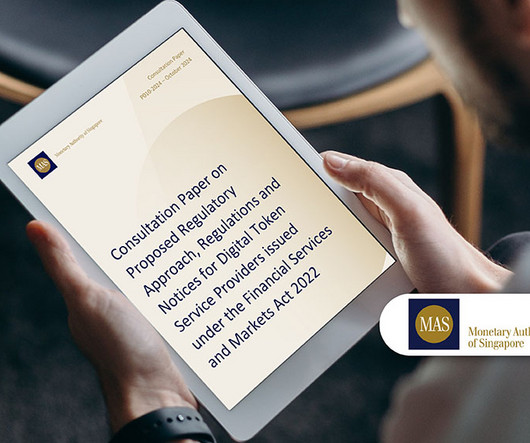Singapore Gets Tough on Offshore Crypto Operators as Time Runs Out
Fintech News
JUNE 5, 2025
Thirdly, MAS has decided that licensed payment service providers and financial institutions, even those licensed and supervised overseas for AML/CFT compliance, cannot be treated as “third parties” under the FSM-N27 Notice. This means DTSPs are not allowed to rely on them to carry out customer due diligence.











Let's personalize your content